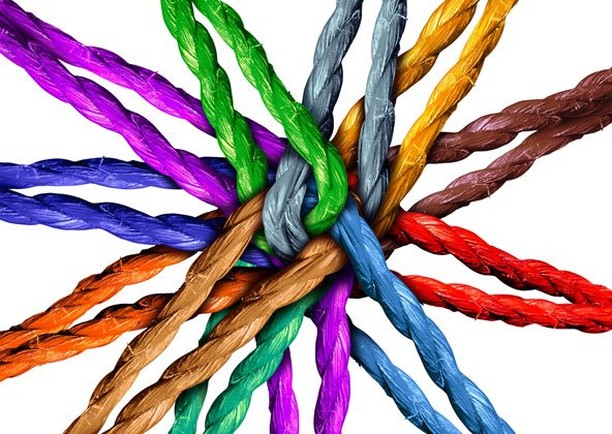The Graduate Student Employees Union (GSEU) has invited students to Anti-Racism Week of Action, an event that demands Binghamton University take action against the promoted culture of racism and white supremacy on campus.
The weeklong series will be hosted from May 10 to 14, where students can participate in scheduled virtual events and tasks divided among the five days. The tasks consist of scripted emails, call-ins and daily social media posts addressed to BU administrators demanding change and recognition within the University. There will also be virtual teach-ins by members of the community where students and instructors can further discuss inequalities.
Each day is themed with a specific issue so that students can select what to advocate for. Monday started the event off with a social media boost for “Get the Word Out” and was followed by “Anti-Racism in the Classroom” on Tuesday, “Mental Health” on Wednesday, “Transparency and Safety” on Thursday and lastly, a series of anti-racism teach-ins and lectures on Friday. An agenda laying out the week, along with detailed scripts, is provided by the GSEU on its Facebook and Instagram accounts.
According to the GSEU, the motivation for the event comes from the lack of response from the BU administration after specific acts of racism and white supremacy on campus were brought to light.
“First, it is in response to the incident that occurred in February where a [teaching assistant] was called a racial slur by a student and the lack of response to rectify this situation,” the GSEU wrote in an email. “Additionally, this lack of actionable response from administration seems to be continuous. They refused to take action toward the list of demands presented after the ‘Stop Asian Hate Rally,’ they refused to take action when we sent in a petition with over 1500 signatures. We are asking them to realize that the system is not working in favor of marginalized folks and to commit to doing what they can to change it.”
The lack of response from BU only continues, according to the GSEU. They explained that even after demanding policy changes to protect marginalized students and instructors in the classroom in previous petitions, BU refused to implement progressive change, in contrast to their public relations messaging. The GSEU hoped that the Anti-Racism Week of Action would give students the opportunity to hold BU accountable for repeatedly failing to support people of color on campus, but also help to build a sense of community within the struggle and fight.
“We hope that this week sends a message to [the administration] that this community of students and instructors is paying attention to their words and that we will be holding them accountable,” the GSEU wrote. “Additionally, we want to build solidarity between the different communities that exist within the campus. We are trying to bridge the gap between undergraduate and graduate students, as well as faculty and members outside the campus. We hope that people will start to feel more supported in their struggles and realize that there are people who are willing to fight alongside them.”
In response to the event’s call for action, Ryan Yarosh, senior director of media and public relations at BU, stated that the University stands with its students against hate and discrimination and applauds and encourages students to report any acts of violence, harassment, intimidation or bias witnessed. According to Yarosh, BU plans to work with organizations on campus to combat racism in the future.
“Faculty Senate leaders are creating a task force that will identify ways to address disruptive behavior, including the use of disparaging, uncivil, racist language that interferes with the ability of all students in the class to learn,” Yarosh wrote in an email. “This task force will collaborate with the Office of Diversity, Equity and Inclusion, Division of Student Affairs and Office of Human Resources to establish recommendations for implementation for the fall 2021 semester.”
Dianel Contreras, a sophomore majoring in cinema, is skeptical of the alleged support from the administration but is optimistic about the possibility of change and expanded conversations the event can promote.
“I think it’s really great that this event is being held,” Contreras wrote in an email. “The University administration has been complicit in multiple acts of racism from students and faculty while simultaneously reassuring students of color of their supposed allyship and support. Hopefully, these calls to action urge the University to actually do something about this issue instead of sweeping it under the rug.”
Once the event is over, the GSEU hopes students leave feeling supported in their struggle and frustration and understand that any change is possible when working in numbers.
“This University is our home and we have a right to feel safe and supported and to have our needs heard,” the GSEU wrote. “We want students to realize that they have every right to ask for changes to be made that benefit them.”



